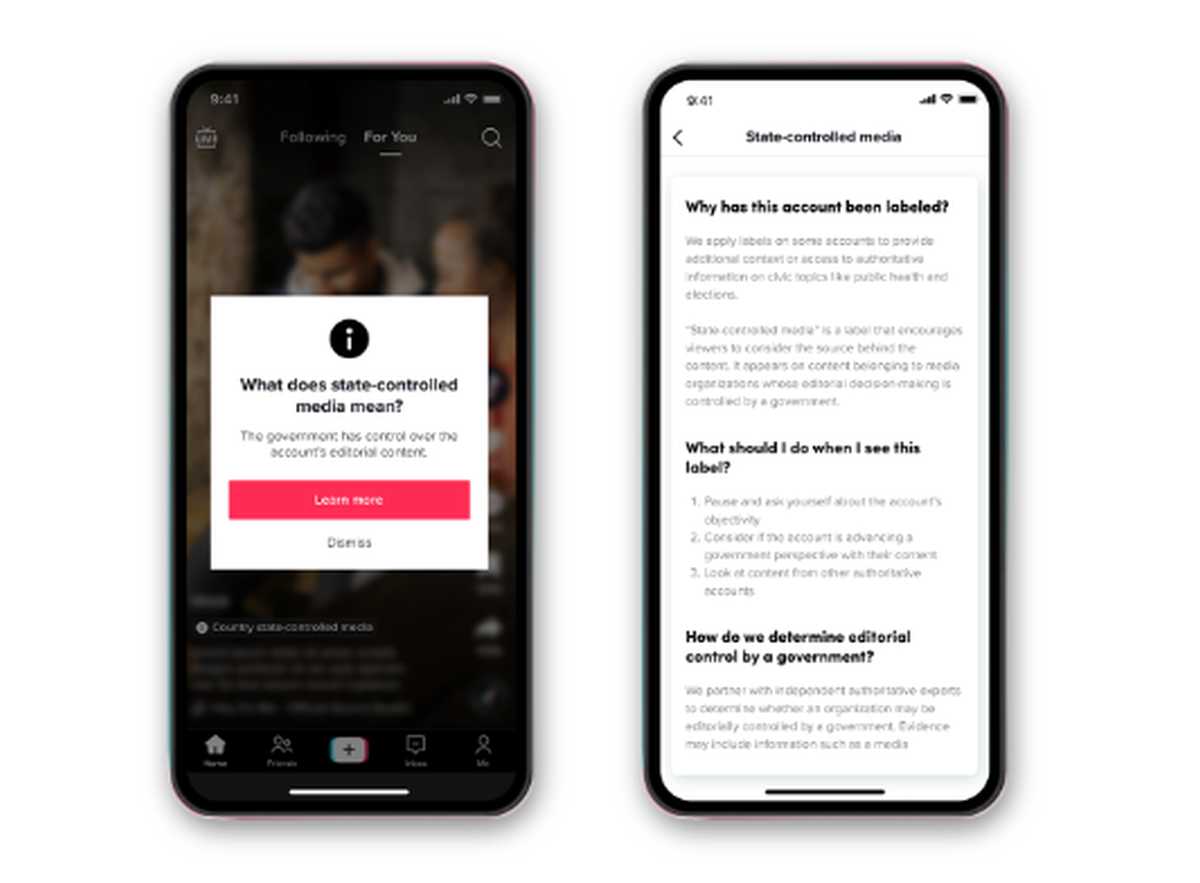TikTok started last year as a pilot new tagging feature media accounts that are in one way or another under state control, starting with state-controlled media in Russia, Ukraine, and Belarus.
The idea is that, in essence, users have “the right, transparent and actionable context” when interacting with the content published by these media outlets on their account on the video platform.
Through this way, TikTok has aligned itself with similar initiatives by Facebook and Twitterwhich also makes it possible to identify by labels when the media is under government influence.
During the pilot period, TikTok has directed a series of questions to media experts, political scientists, academics and representatives of international organizations. and civil society in North and South America, Africa, Europe, the Middle East, Asia and Australia.
They have also taken their questions to their Content and Safety Advisory Council, and have worked closely with a leading, unnamed global media monitor to establish a validated and independent methodology that allows them to make media account labeling decisions based on their degree of editorial independence with the state.
Regarding the evaluation of media editorial independence with states, from TikTok they show that:
We consider the organization’s mission statement, editorial practices and protection, editorial leadership and governance, and its actual editorial decisions. We also apply additional controls to entities that may be highly dependent on state funding, either directly or through advertising, loans and subsidies.
From now on, TikTok will start rolling out its media tagging feature, spanning 40 markets across multiple regions at an early stage, with the promise of rolling out further new features to other markets over time.
The full list of the 40 new markets is as follows:
Afghanistan, Armenia, Austria, Azerbaijan, Belgium, Bulgaria, Canada, China, Croatia, Czech Republic, Denmark, Estonia, Finland, France, Georgia, Germany, Greece, Hungary, Ireland, Italy, Japan, Kazakhstan, Kyrgyzstan, Latvia, Lithuania , Luxembourg, Malta, Mongolia, Netherlands, Poland, Portugal, Republic of Cyprus, Republic of Moldova, Romania, Slovakia, Slovenia, SpanishSweden, Tajikistan, Turkmenistan, United Kingdom, United States of America, Uzbekistan.
Most curiously, this initiative comes months after several states and the United States House of Representatives banned the installation of TikTok on government cell phones on suspicion of threatening security, in addition to accusations against its parent company of spying on Americans. journalist.
Further information: tick tock

“Entrepreneur. Internet fanatic. Certified zombie scholar. Friendly troublemaker. Bacon expert.”







